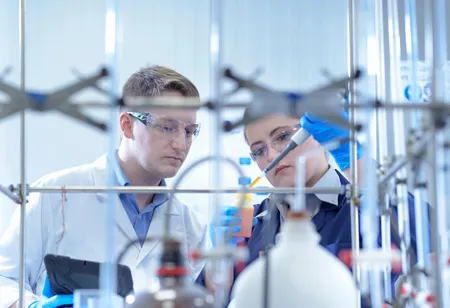Chemical Industry Review | Thursday, September 07, 2023
Chemical safety and compliance are foundational principles that underpin the industry's operations
FREMONT, CA: The chemical industry plays a vital role in modern society, producing substances essential for various applications. However, with great power comes great responsibility, and ensuring chemical safety and compliance is paramount. From manufacturing to transportation and disposal, the industry is steadfastly committed to safeguarding the well-being of workers, communities, and the environment.
Compliance as a Cornerstone
Compliance with regulatory standards is a non-negotiable aspect of the chemical industry. Regulations are in place to prevent accidents, protect human health, and preserve the environment. They encompass everything from proper labeling and storage to waste disposal and emissions control.
The industry's adherence to regulations prevents harm and upholds public trust. Demonstrating a commitment to safety and compliance enhances the industry's reputation and fosters a sense of accountability.
Safe Handling and Storage
Proper handling and storage of chemicals are fundamental to ensuring safety. Chemicals can pose risks ranging from corrosiveness and flammability to toxicity. Employers are responsible for training workers in safely handling chemicals and providing them with protective equipment.
Storage facilities must meet stringent requirements to prevent accidents and leaks. Hazardous materials should be stored in specially-designed containers to minimize spills and leaks risk. Implementing robust inventory management systems ensures that chemicals are stored in appropriate quantities and conditions.
Transportation Safety
The transportation of chemicals presents unique challenges, given the potential for accidents during transit. The chemical industry follows strict guidelines for the transportation of hazardous materials. Proper packaging, labeling, and documentation are crucial to informing carriers, emergency responders, and authorities about the contents of shipments.
Collaboration between the chemical industry, regulatory bodies, and transportation agencies is essential to ensure that chemical shipments are handled safely from the point of origin to the destination.
Emergency Preparedness
Chemical companies prioritize emergency preparedness to respond effectively in case of accidents or incidents. Comprehensive emergency response plans are developed, involving coordination with local authorities, first responders, and communities.
Regular drills and training exercises ensure that workers know how to respond to emergencies, minimizing the potential impact on human life and the environment. These plans are critical for mitigating the consequences of chemical accidents and preventing their escalation.
Innovation for Safety
The chemical industry recognizes that innovation is crucial in enhancing safety and compliance. Cutting-edge technologies, such as sensors and real-time monitoring systems, enable companies to track chemical parameters, detect leaks, and prevent accidents.
Digital platforms provide a means for real-time communication and data sharing among stakeholders. In case of incidents, this instant exchange of information aids in making informed decisions and executing response plans promptly.
Community Engagement and Transparency
Chemical manufacturers understand the importance of open communication with surrounding communities. Regular communication about safety measures, emergency response protocols, and potential risks fosters trust and ensures that communities are prepared to respond effectively to incidents.
Transparency also extends to reporting and documentation. Accurate record-keeping of chemical usage, emissions, and waste disposal helps regulatory bodies monitor compliance and assess potential risks.
Sustainability and Beyond
Chemical safety and compliance are inextricably linked to sustainability. The industry's commitment to environmental protection aligns with global sustainability goals. Minimizing waste, reducing emissions, and exploring alternative, safer chemical processes contribute to a more sustainable future.
Conclusion
As the chemical industry continues to evolve, its unwavering commitment to safeguarding workers, communities, and the environment remains constant. By embracing best practices, leveraging technology, fostering transparency, and collaborating with regulatory bodies, the industry ensures that the benefits of chemical innovation are enjoyed without compromising safety and well-being.

